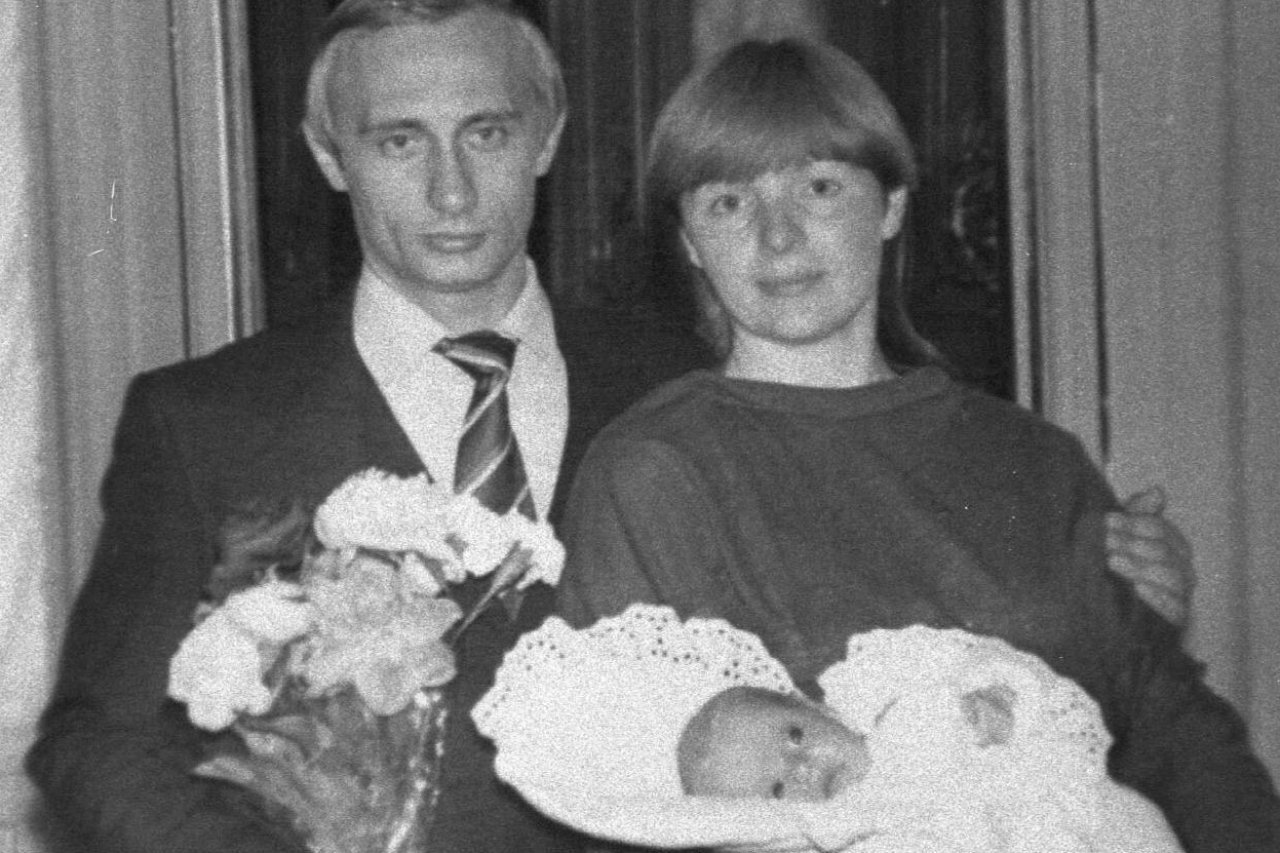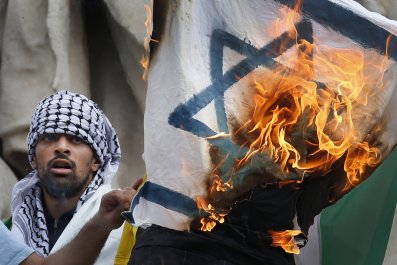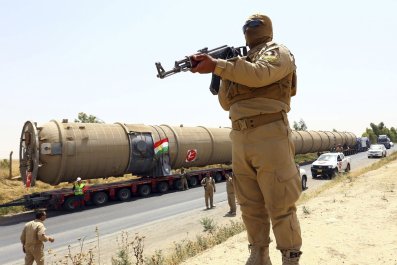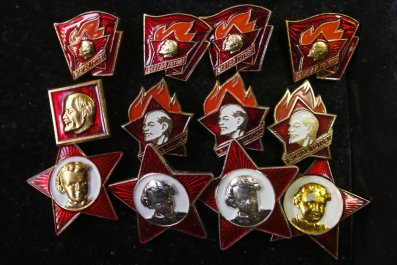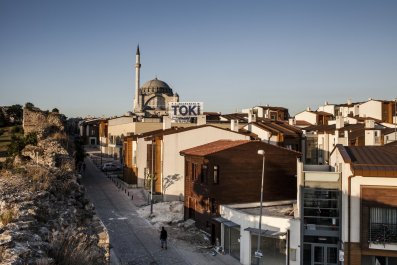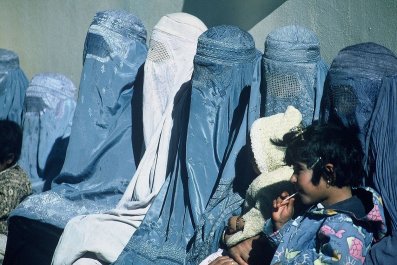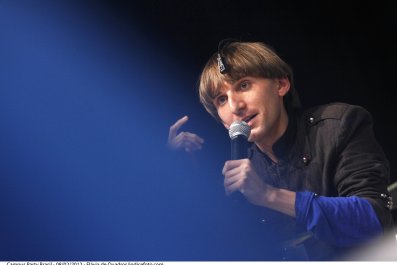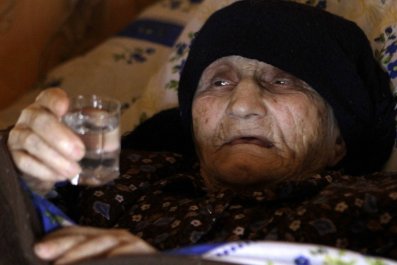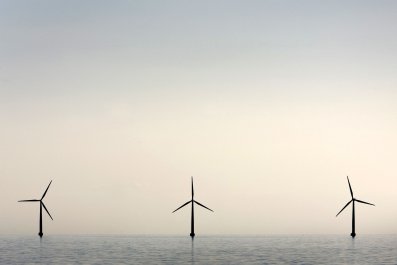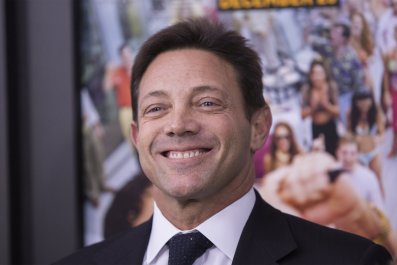Lucky Anastasia Zheleznyak. She has secured one of the BBC's sought-after positions, working as a production assistant at London's Ellstree Film Studios.
But Zheleznyak isn't just any Russian expat making her way up the career ladder. She's the daughter of Duma Deputy Speaker Sergei Zheleznyak, known for his warning of an impending genocide of Russians in Ukraine. Both the United States and the European Union have placed him and other top Russian officials on their sanctions lists, freezing their assets and barring them from entry.
Yet young Zheleznyak, a graduate of the elite American School in Switzerland (Tasis), where annual fees for boarders are €61,714, is under no such restrictions in London. She has one sister with her in the UK, while another is currently at university in Switzerland.
Zheleznyak, whose hobbies include equestrianism and scuba diving, studied for a degree in international relations at Queen Mary University of London and then worked as an intern for MacDougall's Fine Arts Auctions, which specialises in Russian art. She wasn't offered a permanent job there but the firm's director, William MacDougall, tells Newsweek that any decision on her employment was unrelated to her father's issues with the rest of the world.
"We would be perfectly happy to employ the daughter or son of a sanctioned individual, as that is still legal in Britain," he says. "Whatever the merits of sanctions, they do not as yet punish relatives of those concerned."
What Zheleznyak makes of the annexation of Crimea, which led to her father's punishment by the US and the EU, is unclear. She did not respond to an interview request. Perhaps she intends to leave her Western European residence, as Vladimir Putin's daughter Maria did last week when she reportedly fled her Dutch luxury penthouse.
Zheleznyak is not the only offspring of a prominent Russian politician enjoying herself in the West. Indeed, ever since dismantling Communism two decades ago, Russian leaders have been sending their children to the West for better educational and career opportunities.
"It's not good or bad; it's a personal decision," says Sergei Khrushchev, the son of Soviet leader Nikita Khrushchev, who lives in Rhode Island. "During the Cold War, it was simply not possible to send your child to live on the enemy side. That's possible today. And let's not bring back the Cold War rhetoric. Even then, the Soviet Union didn't hate the US. Our leaders believed that we'd be more successful than the US, but my father for one was certainly not hostile to the US."
Neither, argues Khrushchev, are today's Russian leaders, noting that American leaders would be irked too "if tomorrow Russia tried to support the independence of Rhode Island".
Whatever its worldview, the Russian elite has adopted a practice common among leaders of emerging nations. Syrian President Bashar al-Assad attended university in Britain, after being sent here by his father, then-president Hafez al-Assad. So did Saif al-Islam Gaddafi, Muammar's son, and Pakistani political scion and future prime minister Benazir Bhutto (as well as her son Bilawal Bhutto Zardari). Mahatma Gandhi, the son of an Indian chief minister, received his legal training in London.
Saad Hariri, the son of Lebanese president Rafik Hariri, who went on to become president himself, attended university in the US, as did Pakistani ruler Pervez Musharraf's son Bilal and King Abdullah of Jordan. Among other graduates of US universities are Gloria Arroyo, the daughter of the president of the Philippines and a future president herself; Kofi Annan, a member of Ghana's aristocracy and a future UN Secretary-General; Megawati Sukarnoputri, the daughter of Indonesian President Sukarno who was herself later elected president as well.
"Our culture values a Western education more than a local education, probably due to our colonial mentality," notes Matthew Manotoc, a grandson of Filipino ruler Ferdinand Marcos. Manotoc went to university in the US, as did his mother
And it's just not a matter of colonial submissiveness. As Prince Asfa-Wossen, the European-educated son of the last president of Ethiopia's Imperial Crown Council observes, foreign leaders send their children to schools and universities in the West "because they want them to get a good education, but also because they identify with the values and culture of the West".
Ethiopia under Emperor Haile Selassie was an undisputed ally of the West. Indeed, North Korean dictator Kim Jong-il has so far been largely alone in maintaining an openly hostile attitude to the West even as his son Kim Jong-un enjoyed the benefits of it. The younger Kim attended a Swiss boarding school.
But now Russian leaders are going on a collision course with the countries in which their children reside.
"If they so detest the West, if Western society is so inferior, why do they send their kids here?" asks Prince Asfa-Wossen, a graduate of the universities of Cambridge and Tübingen in Germany.
"Surely they understand that their children will be exposed to Western values, and as a result, when the children return home, they won't be as Russian as their parents would like them to be."
The idea that educating future leaders from other nations will make them more Western has long guided the US and Europe's generous approach to foreign students of high and low parentage but not everyone thinks it works.
"The strategy worked well in imperial Britain, but it doesn't really work in a post-Cold War era," explains Dr Christopher Davidson, reader in Middle East Politics at Durham University and an expert on Gulf monarchies. "The children of foreign leaders increasingly live in global elite bubbles like London, interacting only with children of members of the establishment. You see the same people at restaurants in Knightsbridge and Kensington as you do in New York. But they don't rub shoulders with the proletariat in Manchester. They don't experience the country."
The members of this growing young gang are only one degree removed from each other, leaving national hostilities at the doorstep when they arrive, observes Davidson.
Though Gandhi didn't rate the British society he experienced as a law student, his exposure to it was crucial and helped shape his worldview. But if today's foreign scions live within their own world in London or New York, the contract may no longer bring much value beyond the young members establishing friendships amongst themselves. "There's significance in studying abroad and learning from the first world," says Manotoc, who now lives in Manila. "Eventually returning home is crucial though."
With concerns growing over Russia's actions in Ukraine, a non-diplomat might be forgiven for asking whether there isn't an obvious solution: visa bans on the Western-residing children of anti-Western decision-makers. But countries rarely resort to punishing family members. Besides, says Davidson, "it will never happen. These bubbles are a huge source of income."
As far as Khrushchev is concerned, the West shouldn't be too confident of its attractiveness to young Russians. "My grandchildren have decided they want to live in Moscow," he reports. "They say the US is boring."



